Celtic Easter Egg in Blue from Celtic App Celtic images, Celtic, I.n blue
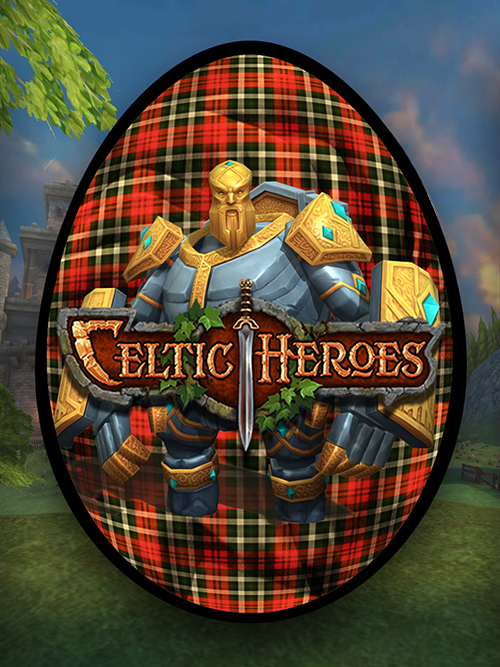
Design A Celtic Heroes Themed Easter Egg! Win Platinum! Celtic Heroes
Eostre, also called Ostara or Eastre, is a Germanic goddess associated with spring and the dawn. She is particularly known in Anglo-Saxon and Old High German traditions and is believed to be the namesake for the Christian holiday of Easter. Notably, there is limited historical information about Eostre, and much of what is known comes from Bede.

Pin on pysanky
Celtic tradition connects the bunny and eggs to both spring and Easter, Both the hare and eggs are signs of fertility, birth and the season of spring not only in Celtic tradition but others as well.

Rejoice Celtic Easter Egg by JKechCeltic on Etsy Easter eggs, Celtic
The Easter Hare is inexplicable to to me, but probably the hare was the sacred animal of Ostara; just as there is a hare on the statue of [the Celtic goddess] Abnoba." [My translation from German.] More developed stories have since emerged connecting Eostre/Ostara and the hare, one of which was the subject of Holly B.'s question:

Alleluia Celtic Easter Egg
Finishing of the Crochet Easter Eggs: Weave in ends on motifs. Using yarn tails for cord sew cord ends together making sure not to twist and Right Side is facing out - Weave in ends. Slide cord around egg - hold in place with hot glue or sewing pins (if using styrofoam egg) and make sure in center. Glue (or pin) each motif on either side of.
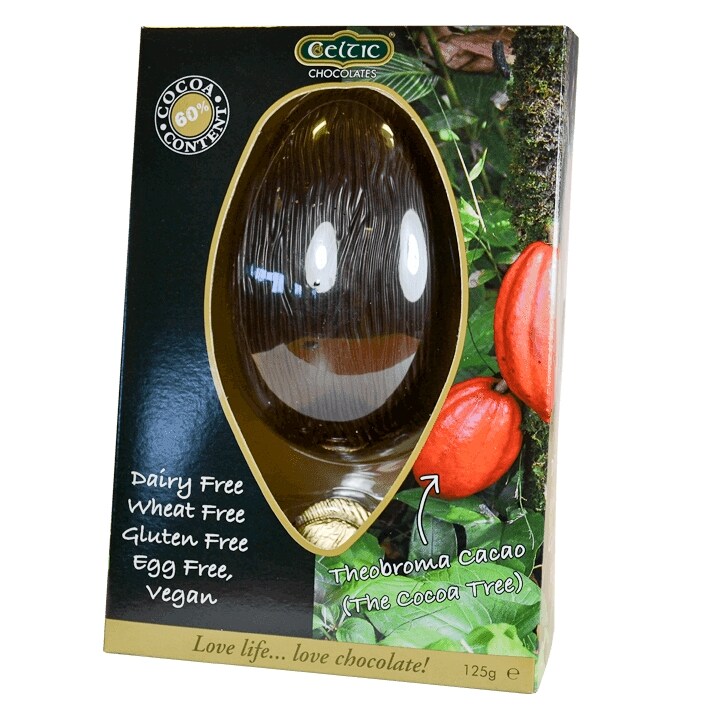
Celtic Dairy Free Easter Egg 125g Holland & Barrett
The origin of Easter eggs can be traced back to ancient times. The tradition has evolved over the centuries due to various cultural influences. Eggs have been an ancient symbol in Persian, Egyptian, and Greek society and were exchanged as part of their springtime festivals. Eventually, the Christians incorporated the eggs into their Easter.

Celtic Cross trinity knotwork themed pysanka, pysanky for Easter
The Origins of Easter customs. The most widely-practiced customs on Easter Sunday relate to the symbol of the rabbit ('Easter bunny') and the egg. As outlined previously, a hare was a symbol associated with Eostre, representing the beginning of Springtime. Likewise, the egg has come to represent Spring, fertility, and renewal.

17 Best images about Ostara and Pysanky on Pinterest Summer solstice
The northern European pagan spring festival for the goddess 'Eostre', goddess of fertility is considered the origins for many of the traditions that surround Christian Easter. And although the name for the Celtic Spring festival has been lost it was likely to be related the Ēostre or Ostara. Pagans or Celts in particular revered nature.
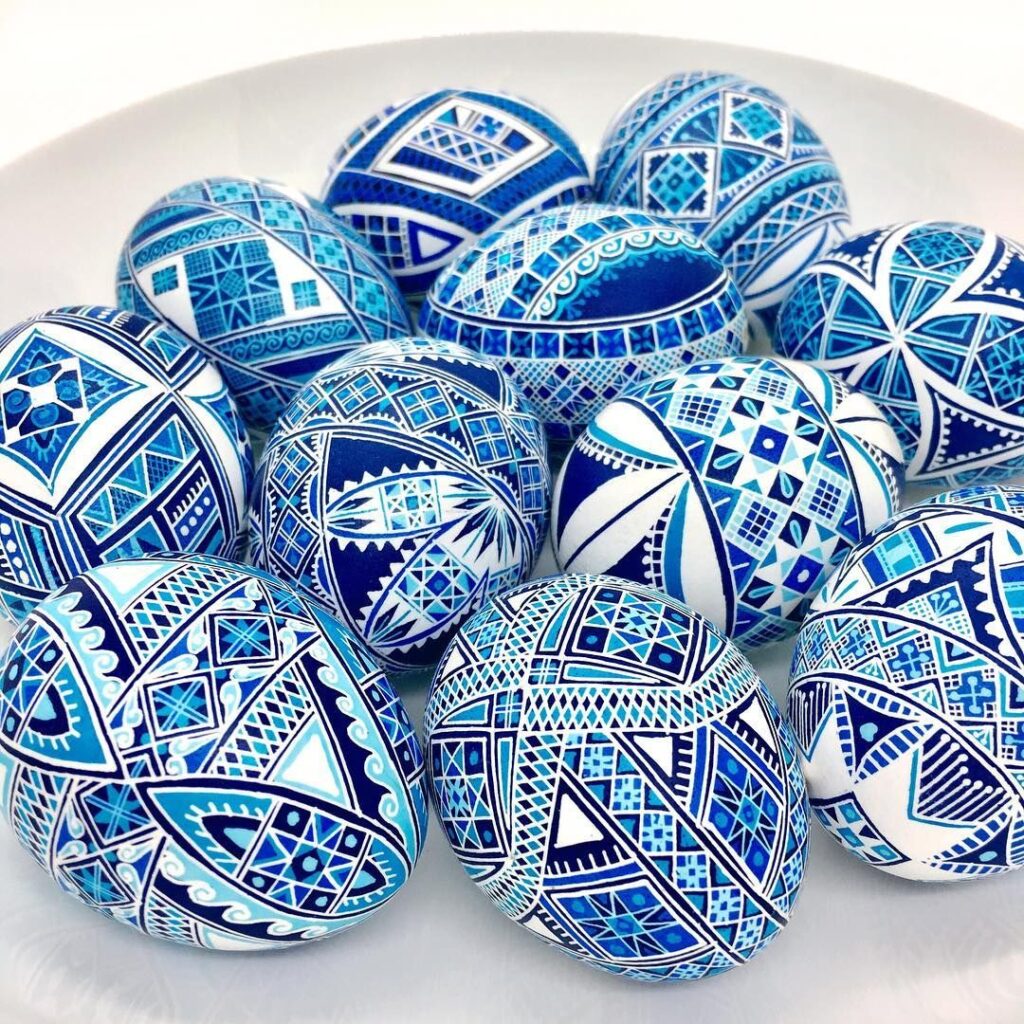
45 Quick & Creative Dying Easter Eggs Ideas Onedesblog
The perfect Easter gift for any Celtic fan! Our Celtic Easter Egg in a Mug includes a ceramic printed mug and a foil wrapped chocolate egg. It will arrive perfectly wrapped in clear cellophane with a green ribbon closure. Key Details Key Details: Ingredients: Sugar, Cocoa Liquor (Cocoa.

fabulous ukranian eggs by mary jansen Easter egg designs, Celtic
Ēostre or Ostara was the goddess of spring associated with the festival of the spring equinox. During this time, eggs were used a symbol of rebirth and the beginning of new life and a hare or rabbit was the symbol of the goddess and fertility. Both these symbols were adopted by Christianity and are still seen today during Easter, together with.
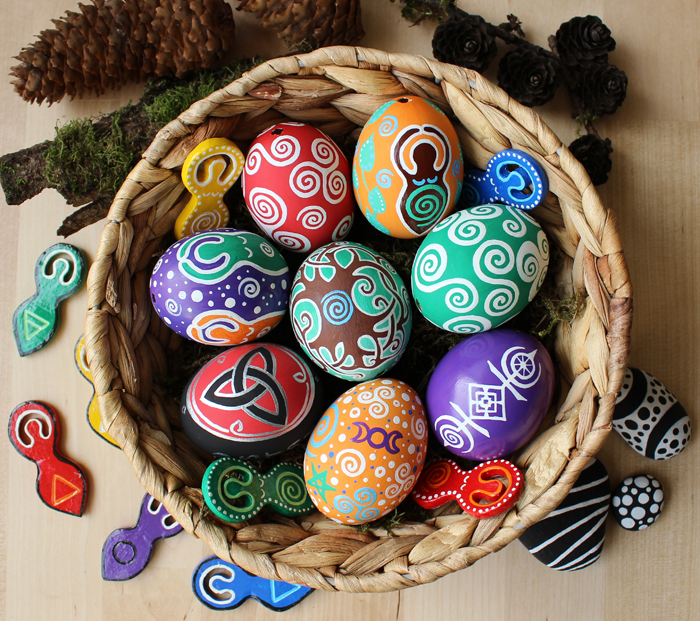
Easter Eggs 2014 Magic Symbols colorful crafts
Easter Sunday is the day immediately following Lent. A solemn period among Christians, Lent commemorates the forty days Jesus spent fasting in the wilderness before the messiah's death on the cross. The word Lent is a shortening of Lenten, which originated from the word lencten, Old English for "spring." 2 This one word holds a clue to.
Easter Eggs Icon Set in Celtic Style Stock Vector Illustration of
Days spent scoffing Easter eggs in my grandmother's kitchen in Co. Laois, or gorging on vulgar amounts of chocolate and sweets with my friends. Each year we ate until our bellies were sick. We spent the evenings sitting by the Gills Pond chatting idly in the cool spring weather. My memories of Easter and spring time are happy ones.

Celtic Banded pysanky. Jodi Henninger Egg art, Fabric patterns
The pagan roots of Pancake Day and Shrove Tuesday. The industrial revolution combined with the rise of commercialism during the 18th and 19th centuries saw the egg and the bunny cement their places in our Easter traditions. Greeting cards were adorned with their imagery, whilst the confectionary company Cadbury starting manufacturing chocolate.

Celtic Easter Egg Celtic Knot Crochet
Easter Eggs. Easter eggs are a popular tradition in many countries, and Ireland is no exception. In Ireland, eggs have long been a symbol of fertility, new life, and rebirth. The tradition of giving and receiving Easter eggs dates back to the early Christian church, where they were a symbol of the empty tomb of Jesus.

Infinity Knot Celtric Shamrock Duck Pysanka, Irish themed pysanky
Check out our celtic easter egg selection for the very best in unique or custom, handmade pieces from our ornaments shops.

Celtic Easter Egg in Blue from Celtic App Celtic images, Celtic, I.n blue
In 51 B.C.E., Julius Caesar noted that people in Britain did not eat hares due to their religious significance. Getty Images. The Easter bunny is a much-celebrated character in American Easter.
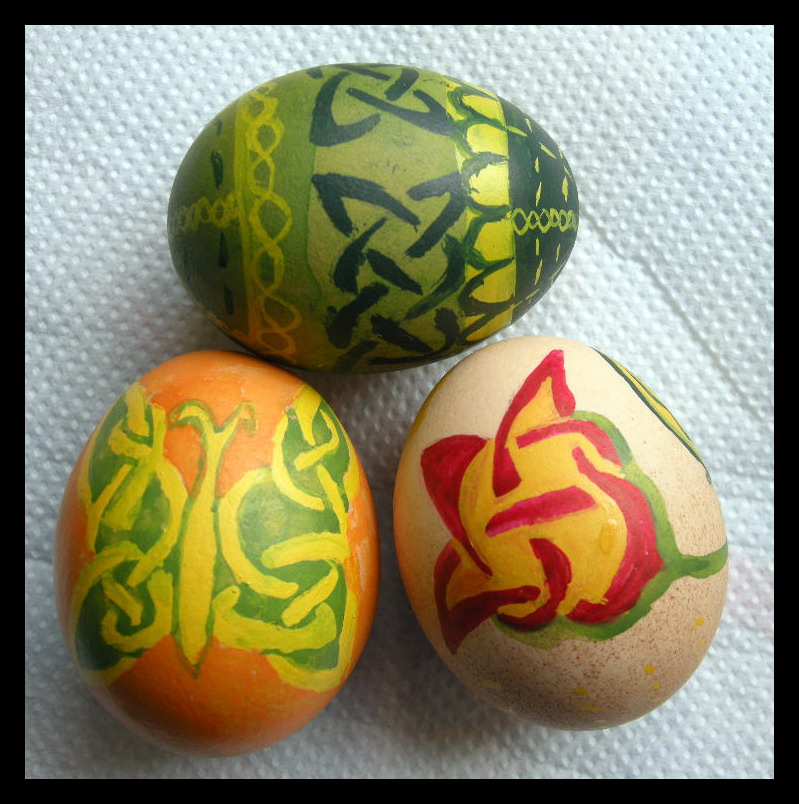
Celtic Eggs by madowca on deviantART
In the Christian tradition Easter commemorates the crucifixion and resurrection (three days later) of Jesus Christ. It also represents the end of 40 days of fasting and prayer following its beginning on Ash Wednesday, the first day of Lent. The actual dates of Easter may be anywhere between March 22nd and April 25th in western Christian tradition.